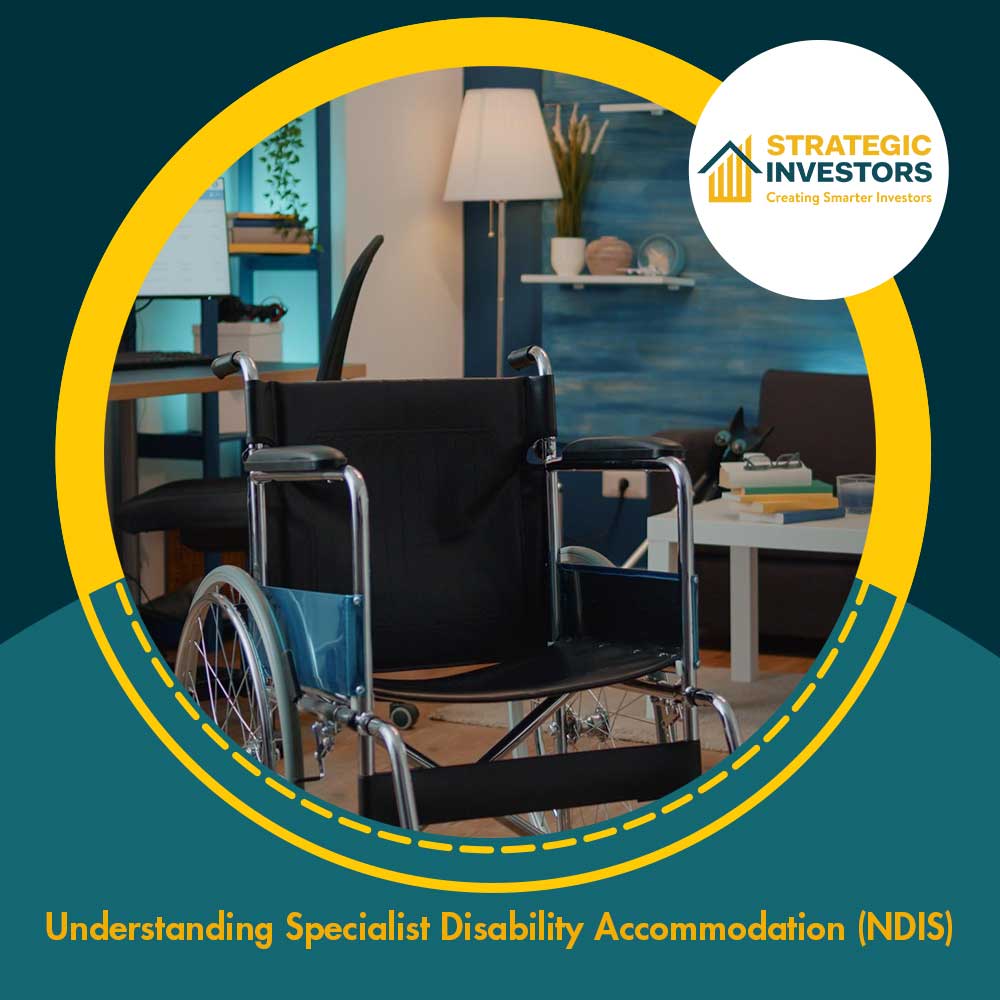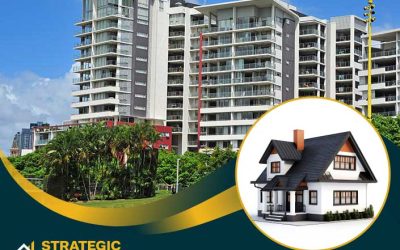
Imagine a world where individuals with extreme functional impairments or high support needs can live in specially designed homes, tailored to their unique requirements.
Welcome to the world of specialist disability accommodation NDIS, also known as Specialist Disability Accommodation (SDA) under the National Disability Insurance Scheme (NDIS).
In this comprehensive guide, we’ll delve into the intricacies of SDA, explore the process of becoming an SDA provider, and unveil the tools and resources that can help you make informed choices about suitable accommodation.
Key Takeaways
- Specialist Disability Accommodation (SDA) is designed to provide housing solutions for disable people who are NDIS participants with extreme functional impairment or high support needs.
- SDA provides four housing categories and design standards tailored to the particular needs of NDIS participants, along with funding allocated based on individual requirements.
- Participants must be aware of personal costs associated with SDA, which can also be combined with Supported Independent Living services for a comprehensive solution.
The Basics of Specialist Disability Accommodation (SDA)
 Specialist Disability Accommodation (SDA) is a game-changer for NDIS participants who have extreme functional impairment or high support needs. It aims to provide housing solutions that cater specifically to the needs of these individuals, allowing them to live more comfortably and independently.
Specialist Disability Accommodation (SDA) is a game-changer for NDIS participants who have extreme functional impairment or high support needs. It aims to provide housing solutions that cater specifically to the needs of these individuals, allowing them to live more comfortably and independently.
SDA funding is applicable to those who demonstrate extreme functional impairment or require a significant level of support. It is distinct from other types of home and living support funded by the NDIS, as it focuses on the physical dwelling and its design, rather than the personal care supports and services received within the home.
Key Components
Specific criteria must be met for individuals to qualify for Specialist Disability Accommodation (SDA), including meeting the requirements for SDA eligibility. These include having extreme functional impairment or very high support needs, being at least 18 years of age, and being eligible for benefits under the NDIS. SDA offers various types of housing, including apartments, villas, duplexes, townhouses, and other fully accessible and high physical support dwellings.
SDA funding covers the capital costs associated with the dwelling, such as construction and upkeep expenses. It is divided into four design categories:
- Improved Liveability
- Fully Accessible
- High Physical Support
- Robust
Supported Independent Living (SIL) funding can also be utilized to fund supports for daily living tasks.
SDA Funding
Those eligible and enrolled in NDIS can avail of SDA funding. To be eligible, they must have extreme functional impairment or high support needs. The NDIA takes into account the participant’s goals and preferences and determines the amount of SDA funding based on their requirements, including the SDA design category, dwelling type, and location. It is anticipated that the total funding for SDA will amount to $25 billion, with an estimated annual funding of $700 million.
SDA funding is allocated directly to SDA providers to cover the expenses associated with building and upkeep. Participants are required to contribute a fair amount towards rent and pay rent for utility costs such as electricity bills.
Becoming an SDA Provider
 An SDA provider is an organization that furnishes SDA to qualified NDIS participants. Providers must register with NDIS and enlist homes that adhere to the standards and prerequisites for specialist disability accommodation to supply SDA.
An SDA provider is an organization that furnishes SDA to qualified NDIS participants. Providers must register with NDIS and enlist homes that adhere to the standards and prerequisites for specialist disability accommodation to supply SDA.
The procedure for registering as an SDA provider involves the following steps:
- Visit the SDA registration and enrollment page on the NDIS website.
- Contact the NDIA to express your interest in becoming an SDA provider.
- Enroll the property that you intend to offer as SDA accommodation.
Requirements for SDA Providers
Both providers and dwellings must be registered with the NDIS and the National Disability Insurance Agency (NDIA) respectively. To become a registered NDIS provider, you need to complete the online application form, select an approved quality auditor, and undergo an audit.
Compliance with the SDA Rules 2020 and registration as an NDIS provider are prerequisites to becoming an SDA provider under the NDIS. Additionally, it may be necessary to engage an Accredited SDA Assessor to evaluate the design of the dwelling against the requirements. Some obligatory documents that may be necessary for enrollment of dwellings with the NDIA include evidence of dwelling, SDA design standard certification from an accredited third-party SDA assessor, and completion of the enrollment form.
Enrolling SDA Dwellings
Providers wanting to provide services in an SDA dwelling must first be registered with the NDIS Quality and Safeguards Commission. Only then can they enrol the SDA dwelling. The process of enrolling a dwelling involves submitting necessary documents to the NDIA and obtaining a certificate of SDA category compliance from an accredited SDA assessor.
The process for enrolling an SDA dwelling includes the following steps:
- The dwelling needs to pass an assessment in order to meet the SDA design standard.
- Once this is confirmed, the SDA provider can enrol the final as-built dwelling with the NDIA.
- This ensures that the accommodation meets the high-quality standards expected for SDA participants.
SDA Housing Categories and Design Standards
 SDA housing categories and design standards play a crucial role in ensuring that participants receive accommodation tailored to their unique needs and preferences. The four housing categories provided by the SDA are:
SDA housing categories and design standards play a crucial role in ensuring that participants receive accommodation tailored to their unique needs and preferences. The four housing categories provided by the SDA are:
- Shared home environment
- High-level physical access home
- Self-contained single occupancy villa
- Shared home with 24/7 support.
These housing categories have been designed to accommodate the particular requirements of SDA-eligible NDIS participants, including:
- Sensory, intellectual, or cognitive impairment
- Significant physical impairment
- Significant or profound intellectual disabilities
- High complex needs
Housing Categories
The four main housing categories for SDA-eligible NDIS participants are:
- Improved Liveability
- Fully Accessible
- Robust
- High Physical Support
Each category serves a specific purpose and caters to the individual needs and preferences of the participants.
The housing categories for Specialist Disability Accommodation (SDA) in NDIS are determined according to the SDA Design Standard. These design categories provide a framework for the development and provision of inclusive, accessible, and comfortable living spaces for participants with varying support needs.
SDA Design Standard
The SDA Design Standard is a set of requirements that must be adhered to in order to guarantee high-quality, well-maintained accommodation for people with disability. A written certification against the SDA design standards is required to enrol dwellings as SDA.
An SDA assessor is responsible for verifying that the design and/or final-as-built dwelling has met all the requirements of the SDA Design Standard. Upon successful verification, they will issue a certificate of SDA category compliance. This ensures that the accommodation provided to participants is of the highest quality, promoting their well-being and independence.
Finding and Choosing SDA Accommodation
 Finding the right SDA accommodation can be a daunting task, but with the right tools and resources, it becomes much easier. The SDA Finder tool is an excellent starting point for locating suitable accommodations that cater to individual needs and preferences.
Finding the right SDA accommodation can be a daunting task, but with the right tools and resources, it becomes much easier. The SDA Finder tool is an excellent starting point for locating suitable accommodations that cater to individual needs and preferences.
Various factors to consider when selecting Specialist Disability Accommodation include:
- Eligibility
- Design categories
- Location
- Provider registration
By taking these factors into account, participants can make an informed decision and choose the most suitable accommodation option for their unique circumstances.
SDA Finder Tool
The National Disability Insurance Agency (NDIA) developed the SDA Finder, an online tool to help NDIS participants locate current SDA vacancies. To effectively navigate the SDA Finder tool, follow these steps:
- Visit the official website.
- Utilize the search function to select the desired geographic region.
- The tool will display data on enrolled SDA vacancies in that region.
- Peruse the data to identify accommodation options that meet your needs.
Clicking on the listings reveals additional information about the vacancies, including accessibility features, building type, and location. This information can help you make an informed decision when choosing the most suitable SDA accommodation for your needs.
Evaluating SDA Options
A critical step in choosing the right accommodation involves evaluating SDA options. Assess the design, layout, and features of the available options to determine if they meet your individual needs and preferences. It’s also recommended to conduct a suitability assessment and view the property in person to get a better understanding of the living environment.
Seek assistance from professionals, such as occupational therapists or consulting organizations that specialize in SDA assessments, to ensure that your chosen accommodation truly meets your needs. By thoroughly evaluating your options, you can make a well-informed decision and select the best SDA accommodation for your unique circumstances.
SDA Pricing Arrangements and Personal Costs
 Participants must be acquainted with the pricing arrangements and personal costs associated with SDA. A summary of all prices applicable to SDA is available, with SDA pricing limits determined by the following factors:
Participants must be acquainted with the pricing arrangements and personal costs associated with SDA. A summary of all prices applicable to SDA is available, with SDA pricing limits determined by the following factors:
- Dwelling’s type
- Location
- Size
- Standard of living
- Accessibility
The anticipated total funding for SDA amounts to $25 billion, with an estimated annual funding of $700 million. Participants are expected to pay for the following personal costs to reside in SDA:
- Rent
- Utilities
- Groceries
- Personal expenses
Price Limits and Funding
The price range for Specialist Disability Accommodation under the NDIS varies depending on the type of dwelling used to provide SDA, such as New Build, Existing Stock, or Legacy Stock. For further information and calculations, please refer to the SDA price calculator on the NDIS website.
Funding for Specialist Disability Accommodation (SDA) under the NDIS is ascertained based on the SDA building type, SDA design category, and location. These parameters are utilized to calculate the maximum amount of funding that a participant can receive for their accommodation. The funding is remitted directly to SDA providers to cover the building and maintenance costs, while participants contribute a reasonable rent.
Personal Costs and Rent
Regular personal costs incurred with Specialist Disability Accommodation (SDA) encompass:
- Rent
- Utilities
- Groceries
- Personal expenses
- Other personal costs
NDIS funding does not cover these costs, so individuals will need to allocate a budget for them independently.
The rent for Specialist Disability Accommodation (SDA) is determined via the Maximum Reasonable Rent Contribution (MRRC) calculation specified by the National Disability Insurance Scheme (NDIS). This calculation is based on factors such as the tenant’s income and any government assistance they receive, such as the disability support pension and Commonwealth rent assistance. Generally, the maximum rent contribution that can be charged is 25% of the disability support pension plus 100% of any Commonwealth Rental Assistance received.
Supported Independent Living (SIL) and SDA
 Supported Independent Living (SIL) and SDA are complementary services under the NDIS, designed to provide different levels of support to individuals with disabilities. While SDA focuses on providing specially designed housing for those with extreme functional impairment or high support needs, SIL offers assistance with daily living tasks and helps individuals live independently.
Supported Independent Living (SIL) and SDA are complementary services under the NDIS, designed to provide different levels of support to individuals with disabilities. While SDA focuses on providing specially designed housing for those with extreme functional impairment or high support needs, SIL offers assistance with daily living tasks and helps individuals live independently.
NDIS participants need to comprehend the relationship between SIL and SDA, as it gives them access to an extensive range of support services and accommodations tailored to their unique needs and preferences.
Understanding SIL
Supported Independent Living (SIL) is a type of support provided to NDIS participants with high disability support needs, offering assistance and/or supervision with everyday tasks within the home to help them live independently. SIL funding is commonly provided to participants with medium to high support requirements and covers support services to manage daily life.
SIL and SDA combined ensure that individuals with disabilities have access to the requisite housing and support services to live independently and prosper. By understanding the differences between SIL and SDA, participants can better assess their needs and make informed decisions about the types of support and accommodations that best suit their unique circumstances.
Combining SIL and SDA Supports
Combining SIL and SDA supports can offer a comprehensive solution for individuals with disabilities, ensuring they receive the necessary amenities and aid to live as independently as possible. Providers in SDA and SIL collaborate to provide personalized housing and onsite supports, with roles and responsibilities clearly delineated through a comprehensive collaboration agreement.
It is possible for providers to deliver both SDA and SIL to the same individual, provided stringent conflict of interest policies and practices are in place. This collaboration between providers ensures that participants receive the best possible support and accommodations tailored to their unique needs and preferences.
Summary
In conclusion, understanding Specialist Disability Accommodation (SDA) and its relationship with Supported Independent Living (SIL) is crucial for NDIS participants with extreme functional impairment or high support needs. By learning about SDA eligibility, housing categories, design standards, and pricing arrangements, participants can make informed choices about suitable accommodations that cater to their unique needs and preferences. Through provider collaboration and the effective use of available tools and resources, SDA and SIL can offer life-changing support for eligible NDIS participants, empowering them to live more independently and improve their overall quality of life.
Frequently Asked Questions

What is a specialist disability accommodation?
Specialist Disability Accommodation (SDA) is a form of housing designed to support people with extreme functional impairment or very high support needs. It provides accessibility features and other facilities to enable them to live independently and receive the necessary supports.
What are the 4 types of SDA?
SDA is comprised of four design categories which are Improved Liveability, Robust, Fully Accessible and High Physical Support. These cater to NDIS participants and are based on individual needs within the built environment.
Can you have SDA without SIL?
Yes, you can have SDA without SIL if it is funded separately in your NDIS plan.
What is the difference between SIL and SDA housing?
SDA refers to the specially designed housing for people with high level care needs, whereas SIL covers the on-site support services that are provided in SDA homes to enable independent living.
What is the main purpose of Specialist Disability Accommodation (SDA)?
Specialist Disability Accommodation (SDA) provides tailored housing solutions for NDIS participants with extreme functional impairments or high support needs.













